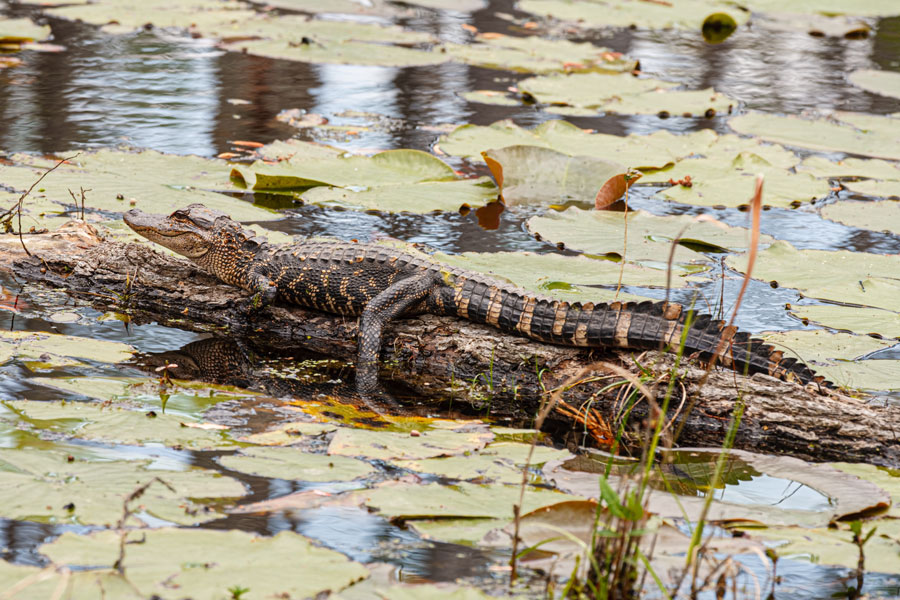Alligator Discovered in Long Island Pond Sparks Investigation; Believed To Have Been Either Abandoned or Illegally Released

FREEPORT, NY – Authorities are investigating after an alligator was discovered in a Long Island pond this week, raising alarm among residents and prompting renewed questions about exotic animals appearing in New York waterways.
The juvenile reptile, spotted by a bird watcher, was recovered from the pond by local animal control officers. Officials confirmed that the alligator was not native to the region and is believed to have been either abandoned or illegally released. State environmental investigators are now working to determine the origin of the animal and whether charges may be filed.
Alligators are prohibited as pets under New York law, and without specialized facilities they cannot survive the region’s colder climate. Experts caution that the reptile likely would not have lasted through the upcoming winter had it not been found
A History of Alligator Sightings on Long Island
While shocking, this was not the first time Long Island has seen an alligator turn up in its ponds and parks. Over the past decade, authorities have removed several reptiles from local waterways:
- 2019 – An eight-inch hatchling was found swimming in a residential pool in Bayport, and later that same year, a three-foot gator was recovered on Staten Island.
- 2014 – Suffolk County SPCA removed a 15-inch alligator from Mill Pond in Yaphank. Investigators suspected abandonment by a private owner.
- 2012 – Three alligators were found in just three days across Long Island, including a two-foot specimen at a Wading River golf course and another captured at Lake Ronkonkoma’s Lily Pond Park. That October, seven alligators were recovered across the region in total, sparking concerns of an exotic pet dumping trend.
In each case, officials concluded the animals were intentionally released. None were evidence of wild breeding populations.
Do Alligators Live on Long Island?
Despite recurring reports, alligators are not native to Long Island and cannot establish sustainable populations here. The reptiles are American alligators, a species found in the southeastern United States, thriving in warm wetlands from Florida to parts of the Carolinas and Louisiana. New York’s climate – particularly its harsh winters – makes long-term survival in the wild impossible.
The recurring appearances are widely attributed to exotic pet ownership. Hatchlings are sometimes purchased illegally and kept until they grow too large or dangerous to manage. At that point, owners may release them into ponds, parks, or wooded areas. Animal control officers stress that this practice is both illegal and dangerous, putting both the animal and the public at risk.
Urban legends of “alligators in the sewers” have circulated in New York City for over a century, but no evidence supports the existence of wild sewer gators or established populations in the region. The sightings on Long Island fit a more grounded explanation: abandoned pets temporarily surviving in unsuitable habitats until discovered.
The latest alligator discovery adds to a curious history of reptile sightings across Long Island, but experts emphasize there is no wild population lurking in local waters. Each case underscores the dangers of illegal exotic pet ownership and the importance of reporting unusual animals to authorities.


